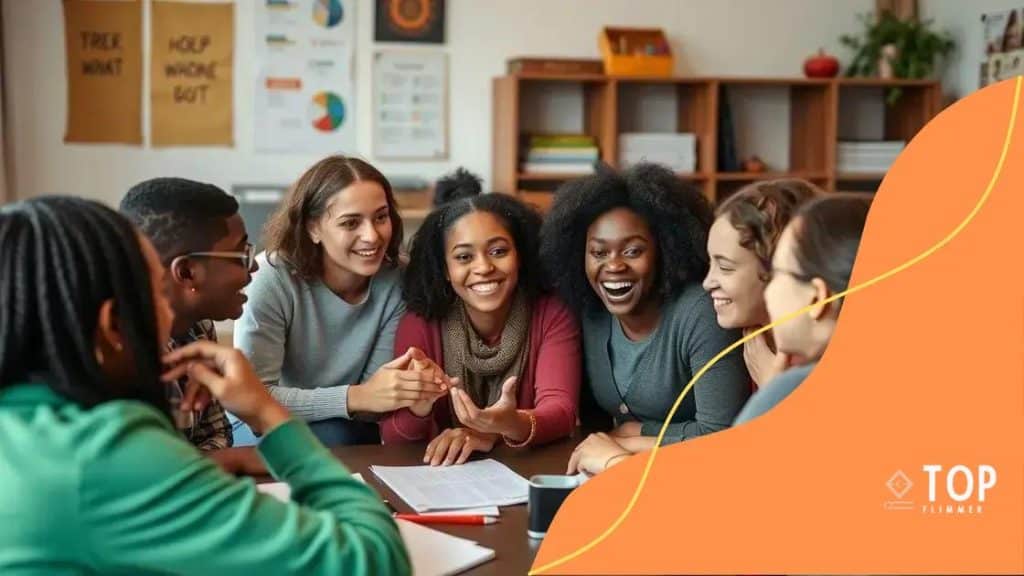Universal access to after-school tutoring benefits everyone

Universal access to after-school tutoring ensures that all students can receive personalized educational support, helping to improve their academic performance, build confidence, and develop essential skills for future success.
Universal access to after-school tutoring can truly level the playing field for students of all backgrounds. Imagine a world where every child has the support they need after school to thrive academically. Let’s dive into the importance of this access and how it shapes futures.
Understanding after-school tutoring
After-school tutoring is an essential resource for students aiming to enhance their learning. It provides an opportunity for personalized instruction and support outside of regular classroom hours. By offering focused help, after-school tutoring helps students grasp difficult concepts and improve their academic performance.
What is after-school tutoring?
After-school tutoring refers to educational assistance provided to students after the school day has ended. This type of tutoring can take place in various settings, including schools, libraries, or online platforms. It’s designed to reinforce what students learn during the day and offer extra help as needed.
Why is after-school tutoring important?
This form of tutoring plays a crucial role in student success. It addresses individual learning needs, allowing students to absorb material at their own pace. Some of the benefits include:
- Increased comprehension of subjects
- Improved grades and test scores
- Greater confidence in academic abilities
- Enhanced critical thinking skills
Additionally, after-school tutoring can also support students who may be falling behind. By providing tailored help, tutors can address specific learning gaps. This personalized approach helps foster a deeper understanding of the subject matter.
One key aspect of after-school tutoring is its flexibility. Sessions can be scheduled according to the needs of the student, making it easier for families to find time for educational support. This ensures that learning continues even after the school day ends, paving the way for better educational outcomes.
Moreover, after-school tutoring often promotes collaboration among students. Working together with peers can deepen understanding and create a sense of community. Whether in small groups or one-on-one settings, these interactions can lead to positive peer relationships and shared learning experiences.
The impact of tutoring on student success
The impact of tutoring on student success is profound and multifaceted. When students receive focused help, they can improve their understanding of subject matter significantly. Personalized attention helps identify individual strengths and weaknesses, leading to better academic outcomes.
Boosting Academic Performance
One of the most noticeable effects of tutoring is its ability to enhance academic performance. Students who participate in tutoring sessions often see improvements in their grades and test scores. This is largely due to the one-on-one attention they receive, allowing tutors to tailor instruction to meet specific needs.
Building Confidence
Beyond grades, tutoring plays a vital role in building student confidence. As students grasp challenging concepts, they become more self-assured in their abilities. This newfound confidence often translates into greater willingness to participate in class and tackle difficult subjects.
- Increased engagement in lessons
- A more positive attitude towards school
- Higher levels of motivation
- Improved attendance rates
Moreover, tutoring fosters resilience in students. They learn to approach difficulties with a problem-solving mindset, which is beneficial not only academically but in life as well. Tutors can provide strategies to help students overcome challenges, instilling a sense of determination.
Another critical aspect is the development of essential skills. Through tutoring, students enhance their critical thinking, time management, and study habits. These skills are valuable beyond academics and prepare them for future endeavors.
In conclusion, the overall impact of tutoring on student success is substantial. With the right support, students can excel academically while gaining important life skills. This holistic approach to learning emphasizes both knowledge and personal growth, ensuring students are equipped for their educational journey.
Barriers to accessing tutoring services

Barriers to accessing tutoring services can limit students from receiving the help they need. Understanding these obstacles is crucial to finding solutions. These barriers can be financial, social, or related to logistical issues, and they affect students’ ability to benefit from tutoring.
Financial Constraints
Many families struggle to afford tutoring services. The costs associated with hiring a private tutor or enrolling in tutoring programs can be a significant barrier, especially for low-income families. This disparity can lead to unequal access to educational resources.
Social and Cultural Factors
Social stigma can also prevent students from seeking tutoring assistance. Some may feel embarrassed to ask for help, believing it shows weakness. Cultural perceptions of tutoring vary, and in some communities, it may be viewed as unnecessary or a sign of failure.
- Cultural beliefs about education
- Stigma surrounding help-seeking
- Disparities in community support
- Lack of awareness about available resources
Additionally, language barriers can impede access to tutoring for non-native speakers. Not being able to communicate effectively may deter students and families from utilizing available services, leaving them at a disadvantage.
Logistical challenges also play a role. For instance, transportation issues can prevent students from reaching tutoring locations, particularly in rural areas. Furthermore, the scheduling of tutoring sessions can conflict with students’ other responsibilities, including family commitments and extracurricular activities.
By identifying and addressing these barriers, we can work toward creating a more inclusive environment for all students, ensuring that everyone has equal access to the support they need to succeed academically. Recognizing these barriers is the first step in finding effective solutions and promoting universal access to tutoring.
Strategies for promoting universal access
Strategies for promoting universal access to tutoring are essential for ensuring that all students can benefit from educational support. By implementing effective measures, we can create an environment where help is accessible to everyone.
Community Partnerships
Building partnerships with community organizations can significantly enhance access to tutoring services. Nonprofits, local businesses, and educational institutions can collaborate to provide free or low-cost tutoring programs. These partnerships can mobilize resources and reach families that may not otherwise consider tutoring.
Grant Programs
Establishing grant programs specifically aimed at funding tutoring services can break down financial barriers. Schools can apply for these grants to offer subsidized tutoring sessions to students in need. This makes access more equitable and ensures that financial constraints do not hinder students’ learning opportunities.
- Increase funding for public tutoring initiatives
- Promote scholarship programs for tutoring
- Develop outreach campaigns to raise awareness
- Encourage businesses to sponsor tutoring initiatives
Another effective strategy is to leverage technology. Online tutoring platforms can expand access for students who may have transportation barriers. Virtual sessions allow for greater flexibility, enabling students to connect with tutors from the comfort of their homes.
Additionally, schools can implement after-school programs that integrate tutoring into regular activities. By making tutoring a part of the school day, students can receive support without having to seek it out separately. This approach normalizes the idea of tutoring, reinforcing that seeking help is a strength, not a weakness.
Outreach and education are also crucial in promoting universal access. Informing parents and students about available resources and how to access them can empower families. Workshops and informational sessions can help demystify tutoring, making it more approachable and understandable for everyone.
Success stories and case studies
Success stories and case studies provide powerful evidence of the positive impact that tutoring can have on student outcomes. These real-life examples demonstrate how effective tutoring has transformed the academic journeys of many young learners.
Real-Life Impact
Many students have seen dramatic improvements in their grades after engaging in tutoring programs. For instance, a middle school student who struggled with math increased their grade from a C to an A after attending weekly tutoring sessions. This improvement not only boosted their confidence but also inspired them to participate more actively in class.
Diverse Experiences
Another example involves a high school student who faced challenges in writing. With the help of a dedicated tutor, they learned essential skills that helped them pass their exams and gain acceptance to their desired college. This story highlights how personalized support can lead to significant achievements.
- A student in a low-income neighborhood raised their reading level by two grades.
- A group of students improved test scores significantly after participating in a community tutoring program.
- A child with learning disabilities gained confidence and improved their social skills through tutoring.
- A bilingual student received assistance that helped them excel in their English classes.
These success stories exemplify the profound benefits of universal access to tutoring. They inspire others and emphasize the importance of making tutoring available to all students. Moreover, sharing such experiences can encourage more families to seek tutoring as a viable option for their children.
By showcasing the positive outcomes that have arisen from tutoring, we can motivate schools and communities to invest in these invaluable resources. Each story underscores the potential of every student to succeed when given the right support, proving that tutoring is not just a tool, but a pathway to success.
FAQ – Questions about Universal Access to After-School Tutoring
What is after-school tutoring?
After-school tutoring is educational support provided to students outside regular school hours, helping them improve in subjects they find challenging.
How can tutoring impact a student’s academic success?
Tutoring can boost academic performance, enhance confidence, and develop critical skills needed for future success.
What barriers might prevent students from accessing tutoring services?
Barriers can include financial constraints, social stigma, language difficulties, and logistical issues like transportation.
How can communities promote universal access to tutoring?
Communities can form partnerships, provide grants, leverage technology, and offer outreach programs to raise awareness about tutoring availability.






